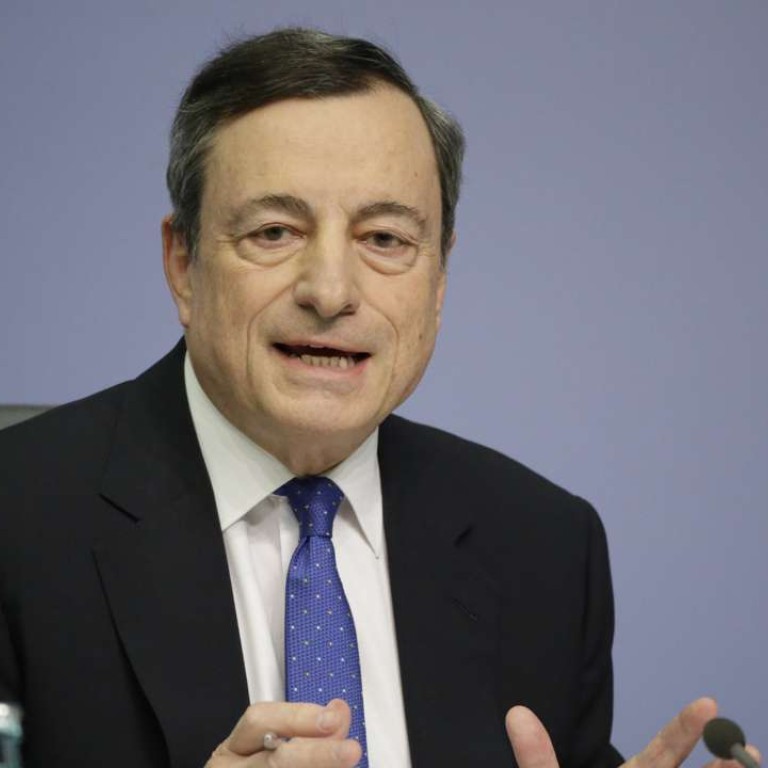
Disruptions from global politics the biggest risk for investors
The head of the European Central Bank says global political events like Brexit and turbulent election campaigns in Europe pose increasing risks for the economy.
Mario Draghi said that the international arena has become more troubling since last year even as the 19-country eurozone’s economy continues to heal from its own home-grown and drawn-out economic difficulties.
“If one wants to assess the balance... we would say that the domestic sources of risks have been more contained,” Draghi said at a news conference after the bank left its stimulus programmes unchanged.
“And the geopolitical global risks share of importance, if anything, has gone up.”

Risk factors Draghi mentioned include the raft of European elections this year in France, the Netherlands and Germany that will give right-wing candidates opposed to the EU and euro membership a chance to test their support. And Britain is due to start its official divorce talks with the European Union within weeks.
New US President Donald Trump has raised uncertainty about US policy on trade as well as toward the dollar by at one point mentioning the currency was “too strong.” One of his trade advisers accused Germany of benefiting from a too-weak euro. Draghi rejected such criticism, citing the US Treasury’s own assessment that the ECB has not intervened in currency markets.
Draghi said it was especially important for countries to avoid protectionism and stick with commitments not to devalue their currencies to grab a quick trade advantage at others’ expense. Finance ministers from the Group of 20 biggest economies, including new US Treasury Secretary Steven Mnuchin, are to get a chance to do that at a meeting in Baden-Baden, Germany, next week.
Draghi said that while geopolitical events have not derailed the economy’s recovery so far, it was unwise to become complacent.
“We don’t know yet how these risk events will reverberate on the economic situation,” he said.
Draghi was speaking after the ECB decided against changing the size or duration of its stimulus programmes, even though economic growth across eurozone appears to be picking up steam and inflation has risen to the bank’s targets.
The eurozone economy grew 1.7 per cent last year as the bloc continues to recover from a crisis over high debt that threatened to break it apart in 2011-2012. Unemployment has slowly fallen to 9.6 per cent with big differences among member countries; Germany’s is at 3.9 per cent but Greece, still struggling with bailouts, has a rate of 23 per cent. By comparison, the rate in the US is 4.8 per cent.
The ECB kept its bond purchases from banks — a form of stimulus — unchanged at 80 billion euros (US$85 billion) this month and 60 billion euros per month through the end of the year. It held its key short-term interest rate benchmark at zero, and maintained its rate on deposits from commercial banks at minus 0.4 per cent. That is in effect a tax aimed at pushing banks to lend the money, not stash it at the ECB.

Now that inflation has reached 2 per cent, calls have arisen to start withdrawing the stimulus, particularly in Germany, where the stimulus was never popular in the first place. German economists, media and politicians have bemoaned low interest rates on savings and pension products. Some have argued that the low rates bail out indebted governments such as Italy, which face less pressure to reduce budget deficits because they can borrow cheaply.
Draghi has pushed back against critics so far with the backing of an apparent majority on the bank’s 25-member governing council. Nineteen of the members are the heads of central banks from the member countries — several of which need the stimulus far more than Germany.

